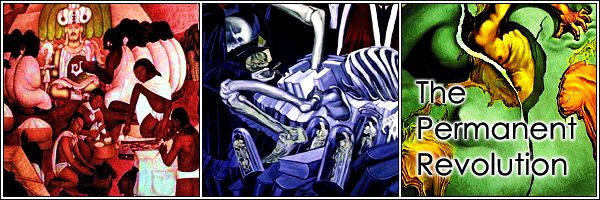Identity Crisis
There is something unique in the Iraqi resistance. It is incredibly divided, uncoordinated even. Iraq is like the French resistance without Charles DeGaulle to unify them or the Vietnamese with Ho Chi Minh. Perhaps there is simply not the right personality to unite the Iraqi resistance. I think the problem is deeper then that.
We could compare it to the Chinese resistance to the Japanese during WW2. There to was a divided resistance, fiercely opposed to one another and only cooperating in the face of Japanese agression. And we can note a similarity in that although the different Iraqi resistance groups have conflicting views of what Iraq should be, there is a truce until the crusaders are gone. One can imagine the place will descend into civil war if the Americans leave and the Interim Iraqi Government falls.
But again, the situation in Iraq is different, because the groups are defined by their religion or race (at least the ones making noise, the Sunnis and Sadr's Shiites) as opposed to something as fleeting as a your political view. Perhaps we could compare it to the former Yugoslavia? There the war was on religious lines. But Iraq is again different, because in Yugoslavia, they all agreed on how they defined themselves. They divided themselves on religious lines, that meant conflict, but one which has relatively simple solutions (usually just cutting up the country on religious lines). The Iraqis do not yet agree on how they define themselves.
What is an Iraqi? Is he first a muslim? Some might say so, if so, Iraq should hold together. Is he first an Arab or Kurd? The Kurds would agree, they might even be tempted to formalise the de facto independence they've had for the past ten years and distance themselves from turbulent arab Iraq. Is he a Sunni or Shiite first? Given the division of the violence and the lack of any recognised leader of all the resistance, many of them think so. Thus we have an Iraq with no easy solution, because they have not defined themselves.
Iraq is thus a puzzle. Bush perhaps hopes that they are muslim enough to keep the country together, but not too muslim or they'd fight for their Islamic Republic. Bush and Iraq's worse nightmare would be if the Arabs see themselves as Shiites and Sunnis, a situation ripe for civil war which could no doubt lead the Shiite majority to abuse the Sunnis, or perhaps the Sunnis win if they have enough foreign fighters on their side. Either way, its a lose-lose for the US. Another possibility, perhaps the most likely, would be a racial division of Iraq. The Kurds proclaim independence, and unless Turkey or the overstretched US oppose it, there is little the Iraqis could do about it. The Arab Iraqis would then be deprived of the oil-fields near Kirkuk, Iraq's main economic asset and be doomed to povert, althought it does mean oil is out of the hands of any extremists.
These are the problems caused by Iraq's, and more generally the arab world's identity crisis. I was completely ignorant of the situation in Iraq at the war's beginning, and merely viewed that it was all-good to topple a despot. In retrospect, I wonder how the administration could not see it as the Pandora's Box it is, even though its obviously easy to say this after the fact.
We could compare it to the Chinese resistance to the Japanese during WW2. There to was a divided resistance, fiercely opposed to one another and only cooperating in the face of Japanese agression. And we can note a similarity in that although the different Iraqi resistance groups have conflicting views of what Iraq should be, there is a truce until the crusaders are gone. One can imagine the place will descend into civil war if the Americans leave and the Interim Iraqi Government falls.
But again, the situation in Iraq is different, because the groups are defined by their religion or race (at least the ones making noise, the Sunnis and Sadr's Shiites) as opposed to something as fleeting as a your political view. Perhaps we could compare it to the former Yugoslavia? There the war was on religious lines. But Iraq is again different, because in Yugoslavia, they all agreed on how they defined themselves. They divided themselves on religious lines, that meant conflict, but one which has relatively simple solutions (usually just cutting up the country on religious lines). The Iraqis do not yet agree on how they define themselves.
What is an Iraqi? Is he first a muslim? Some might say so, if so, Iraq should hold together. Is he first an Arab or Kurd? The Kurds would agree, they might even be tempted to formalise the de facto independence they've had for the past ten years and distance themselves from turbulent arab Iraq. Is he a Sunni or Shiite first? Given the division of the violence and the lack of any recognised leader of all the resistance, many of them think so. Thus we have an Iraq with no easy solution, because they have not defined themselves.
Iraq is thus a puzzle. Bush perhaps hopes that they are muslim enough to keep the country together, but not too muslim or they'd fight for their Islamic Republic. Bush and Iraq's worse nightmare would be if the Arabs see themselves as Shiites and Sunnis, a situation ripe for civil war which could no doubt lead the Shiite majority to abuse the Sunnis, or perhaps the Sunnis win if they have enough foreign fighters on their side. Either way, its a lose-lose for the US. Another possibility, perhaps the most likely, would be a racial division of Iraq. The Kurds proclaim independence, and unless Turkey or the overstretched US oppose it, there is little the Iraqis could do about it. The Arab Iraqis would then be deprived of the oil-fields near Kirkuk, Iraq's main economic asset and be doomed to povert, althought it does mean oil is out of the hands of any extremists.
These are the problems caused by Iraq's, and more generally the arab world's identity crisis. I was completely ignorant of the situation in Iraq at the war's beginning, and merely viewed that it was all-good to topple a despot. In retrospect, I wonder how the administration could not see it as the Pandora's Box it is, even though its obviously easy to say this after the fact.




